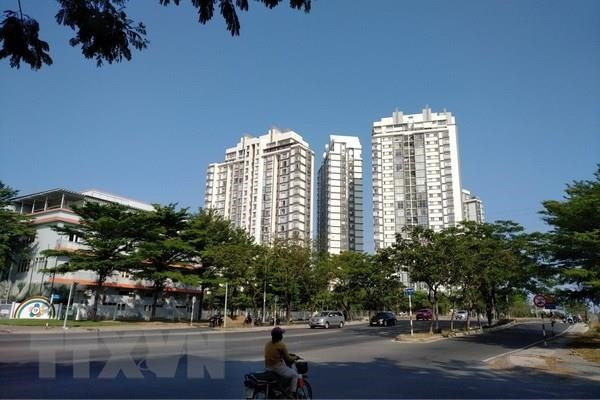[ad_1]

HCM CITY — The Vietnamese property market is expected to slow down, with prices starting to drop by the end of this year and hitting the bottom by mid-2021, creating opportunities for home buyers sitting on cash, experts have forecast.
“Housing prices will begin to plummet by the end of this year and bottom out by mid-2021 when the [COVID-19] pandemic has impacted almost every sector, especially the housing market,” Trần Khánh Quang, general director of Việt An Hòa Company, said.
Since the second wave of the pandemic began late last month, investors’ confidence has once again weakened as property sales dived and incomes were hit hard.
“Investors have to wait and observe the market,” he said.
“The financial market has faced fluctuations since the beginning of the year when the outbreak started.
“A large amount of long-term cash flow is still waiting for good prices to buy.
“From the end of the year to the first half of 2021 will be an opportunity for home buyers. The most affected segment is the higher end.”
Experts said the most valuable assets in or near the central area are expected to be hit hardest.
Tourism real estate, restaurants and hotels and resorts at tourist hotspots, especially along the coast such as Phú Quốc, Nha Trang and Đà Nẵng, are expected to be the worst affected.
Buyers are waiting for prices to drop further, hopefully by 15-20 per cent, to buy, experts said.
Phan Công Chánh, general director of Phú Vinh Group, said investors who had bought property at peak prices (before the pandemic) are now struggling to repay bank loans while they find it extremely hard to sell their property now.
With the real estate market remaining uncertain in the first half and probably continuing to be so for the rest of the year the commercial housing segment in HCM City faces a slump, according to Savills Vietnam.
The outbreak has forced people to tighten their purse strings due to loss of income, which would also affect housing demand.
Housing development has also been facing a prolonged legal and licensing barrier, hitting buyers’ confidence.
The resurgence of COVID-19 caused the online real estate market to slow down by 7 per cent in July as measured by users’ likes and number of searches, according to a report from popular property website Batdongsan.
The amount of news posted and the level of interest in the market has seen a decrease since late-July due to the return of the deadly virus, it reports.
Interest levels in online real estate floors in provinces recorded an average drop of 10 per cent.
The website’s internet consumer research data also show that in Đà Nẵng, the new disease epicentre, it dropped by 20 per cent, the highest rate in the country.
Opportunities for buyers
Once borrowers cannot afford to repay loans, the likelihood is that banks will begin to sell their collateral, which is expected to happen in the next six to 12 months.
Nguyễn Khánh Duy, director of housing business at Savills, said, “This is a golden opportunity for both home buyers and investors to buy.”
According to his company, in the first half of the year the supply of condos in the primary market decreased by more than 9,100 units, or 52 per cent year-on-year, to the lowest level in the last five years.
The supply of land lots plummeted by 53 per cent and that of villas and townhouses, by 23 per cent. Sales of land declined by 67 per cent.
The number of condo transactions in the first half dropped by 55 per cent to just 6,800 units, again the lowest in the last five years. The number of transactions for villas and townhouses decreased by 34 per cent.
When the market gets gloomy, most developers tend to be cautious due to uncertainty, according to Duy.
“Buyers are now hesitant to buy while sellers are being urged to sell out due to losses.”
“This is also a good time for acquisition of real estate projects across the country, especially in major cities like HCM City,” he added.
Affordable segment preferred
Lê Hoàng Châu, chairman of the HCM City Real Estate Association (HoREA), said the market would continue to have high demand for affordable apartments while the supply in this segment is limited.
“There is need for more investment in the affordable housing segment. This segment has high demand and also high liquidity”.
Demand from foreigners was also increasing, said Nguyễn Đức Thêm, project sales manager at Savills.
According to HoREA’s report foreigners now own around 16,000 apartments, or 2 per cent of the total supply, and this has not affected locals’ opportunity to buy housing.
Since 2015 big-name developers have sold 12,335 units to foreigners, 81 per cent of them in HCM City.
Most people coming from Europe, North America, Australia, and Japan prefer to rent when they come to work in Việt Nam, while those from mainland China, South Korea, Taiwan, Hong Kong, and Singapore prefer buying, it added. — VNS
[ad_2]
Source link
